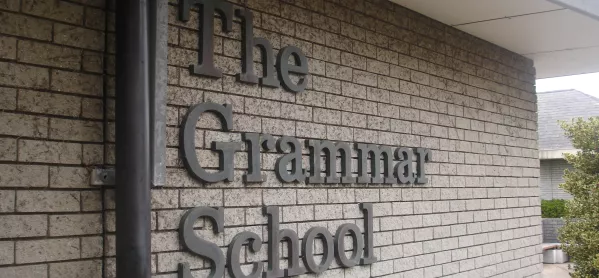This morning, Jeremy Corbyn made Conservative plans for more
grammar schools an election campaign issue. It has been a long time coming.
In a tweet to his 1.1 million Twitter followers, he shared a video of Eleanor, now aged 19, recalling how taking the 11 Plus divided her from her friends.
“All of a sudden this bright and able little girl was replaced with someone who was just stupid and not good enough to be their friend,” she tells the camera.
The advert ends with Labour’s election slogan, “For the many, not the few”.
While education has been one of the biggest issues in the “Brexit election”, the most controversial plan to reform to the school system in generations has been most notable by its absence.
This is surprising, and not just because Theresa May made grammar schools the subject of her first major domestic policy speech after entering Downing Street.
It is also a bitterly divisive issue which provides red meat to the core supporters of both main parties.
So why have the Conservatives and Labour both chosen not to put their support and opposition to new grammar schools up front and centre during the election campaign?
For the Tories, the policy was no doubt part of its strategy to hoover up the post-Brexit Ukip vote.
Much of this had been achieved by the time the prime minister called the election in April, and any doubt was extinguished by the destruction of Ukip in the following month’s council elections.
For Theresa May, the most important thing was to have a commitment to grammar schools written into her manifesto, giving her the constitutional grounds to push the legislation through an otherwise reluctant House of Lords if she won.
For Labour, there were better songs to sing.
The teaching unions’ campaign on school funding has been extraordinarily effective, helping education to become the third most important issue for parents.
Campaigning against cuts in the classroom is one of those emotive “bumper sticker” issues that has wide appeal and is easy to explain. In contrast, making the case against grammar schools, especially when citing academic research about their effect on social mobility, is more likely to engage the head than the heart.
With Brexit sucking up much of the oxygen in the first weeks of the campaign, and terrorism in the last weeks, there have been limited opportunities to push other issues onto the agenda.
The parties may also have calculated that while their grammar school policies may appeal to their existing supporters, they are unlikely to secure new converts.
Corbyn’s return to grammar schools on the last day of the campaign is best seen as an attempt to get the core vote out tomorrow, rather than widen the party’s appeal.
And so, the merits of what might become the important reform of the next five years has been left largely undebated by the electorate.





